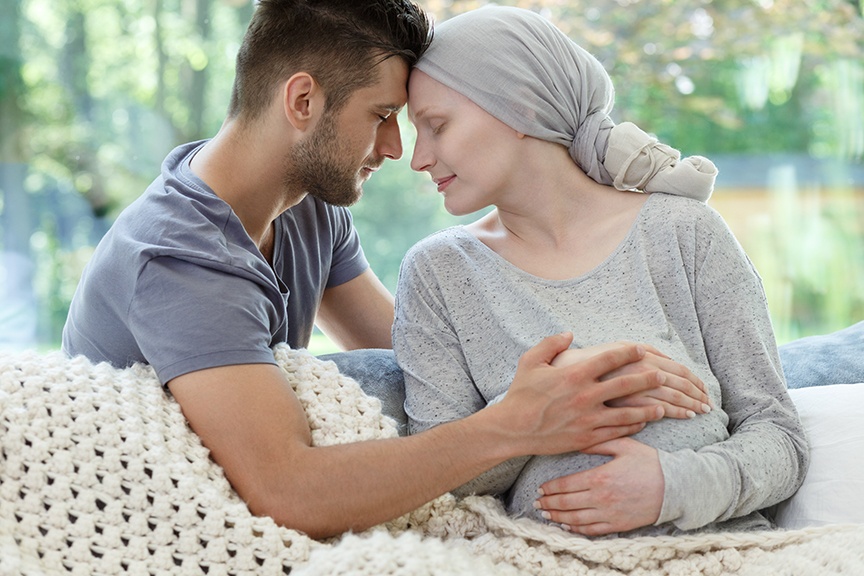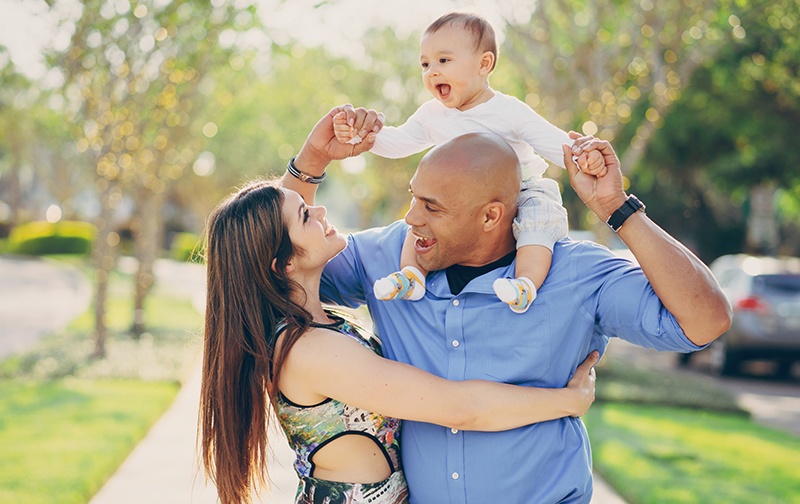
If you have family members with cancer, you may wonder if you are at risk of developing it too (if it “runs in the family”). Sometimes a gene mutation that can cause cancer is passed on to you by your parents (inherited). Cancers caused by inherited gene mutations are called inherited cancers. And sometimes cancer happens more often in family members who share the same habits, live in the same area or share other genetic factors (non-inherited cancers). Some types of cancer are also strongly linked to family history such as breast and colorectal cancers.
Your risk of developing cancer may only be slightly increased if a close family member has cancer. But your risk may be high if you inherit a gene that is linked to cancer. That’s why it’s important to talk to your doctor about your family history of cancer and let your doctor know when there is a change to a family member’s health. They can help you decide if you should have tests to look for a genetic change or watch for early signs of cancer.
Family history and cancer
A family history is a record of your family’s health information, including your parents, brothers, sisters, aunts, uncles and grandparents. Knowing your family history of cancer and other conditions is important. When you share this information with your doctor, it helps them decide if you have a higher risk of disease. If your doctor thinks you may have a higher risk of developing cancer, they can recommend tests or watch for certain signs of the disease.
Having a family history of cancer doesn’t mean that you will develop cancer. And people who don’t have a family history of cancer can still be at risk of developing it.
If you don’t know any information about your family’s history, ask. Talk to your parents and other relatives about their health – such as what medical problems they have and when those problems started. In some cases, it may also be helpful to get copies of medical records or other documents such as death certificates. Let your doctor know if there are any updates to your family history.
Familial cancers
Familial cancers are cancers that happen in families more often than would be expected by chance. Familial cancers may not be linked to a known gene mutation but may be due to a combination of factors shared by a family. This includes things around you, such as where you live. It can also include how you live your life, such as what you eat and how physically active you are. You may also share some genetic factors. Familial cancers aren’t the same as an inherited cancer, but they may be linked to a higher cancer risk. The risk is highest when you have a close family member with some types of cancer, such as breast or colorectal cancer.
Inherited cancers
Some families have a higher risk of cancer because family members carry an inherited gene mutation that is passed from a parent to a child. Some inherited gene mutations are linked to a family cancer syndrome (also called an inherited or hereditary cancer syndrome), such as Lynch syndrome. About 5% to 10% of all cancers are inherited.
These are clues that a cancer may be related to an inherited gene mutation:
- Family members were diagnosed with cancer at a younger age.
- Many family members have the same or a related type of cancer.
- Someone in the family develops more than one type of cancer (such as breast and ovarian cancers).
- Cancer is in both pairs of an organ (such as both breasts, both kidneys or both eyes).
- Family members have an uncommon or rare type of cancer.
- There is more than one case of childhood cancer in siblings (brothers and sisters).
When trying to decide whether a family history of cancer may be hereditary, it is important to note that the relatives with cancer only count if they are blood relatives of each other. For example, you could have 2 aunts with breast cancer, one on each side of the family. They aren’t blood relatives of each other so it is less likely to be hereditary than if they were on the same side of the family.
How is cancer inherited?
Genes are pieces of DNA that are found within chromosomes in all of our cells. We inherit a set of chromosomes from each parent, so our cells have 23 pairs of chromosomes. And every person has 2 copies of each gene, one copy inherited from our mother and the other copy inherited from our father. Gene mutations are sometimes passed from a parent to a child through the father’s sperm or the mother’s egg (also called germ cells). These are called inherited gene mutations. Some gene mutations increase a person’s risk of developing cancer. These genes are called cancer genes or cancer susceptibility genes. People who inherit certain gene mutations, such as BRCA gene mutations, have a higher risk of developing some types of cancer. But it doesn’t mean that they will develop cancer.
Family cancer syndromes
There are some genetic conditions or disorders that are inherited if a mutated gene that causes the condition is passed from a parent to a child. Some of these inherited genetic conditions are linked to a higher risk of cancer and are called family cancer syndromes or inherited (hereditary) cancer syndromes.
The chance of inheriting a gene mutation or a family cancer syndrome linked to a gene mutation depends on whether the gene is dominant or recessive.
- Dominant inheritance means that a person only needs to inherit 1 copy of the gene mutation from a parent to have the inherited cancer syndrome. Most inherited cancer syndromes are caused by dominant inheritance.
- Recessive inheritance means that a person needs to inherit 2 copies of a gene mutation (1 copy from each parent) to have the family cancer syndrome.
Reducing your risk
Knowing your family history can help you take steps to lower your risk of developing cancer. Talk to your doctor to find out ways to lower your risk and find cancer early. This may include:
- eating a healthy diet
- being more physically active
- quitting smoking
- having regular checkups
- looking for any signs of change to your body
- having certain tests such as genetic testing, a mammogram or a colonoscopy
- beginning screening at an earlier age or having screening tests more often
- taking drugs that may help lower risk (chemoprevention)
- having preventive (prophylactic) surgery to remove the organs that have the highest risk of developing cancer



